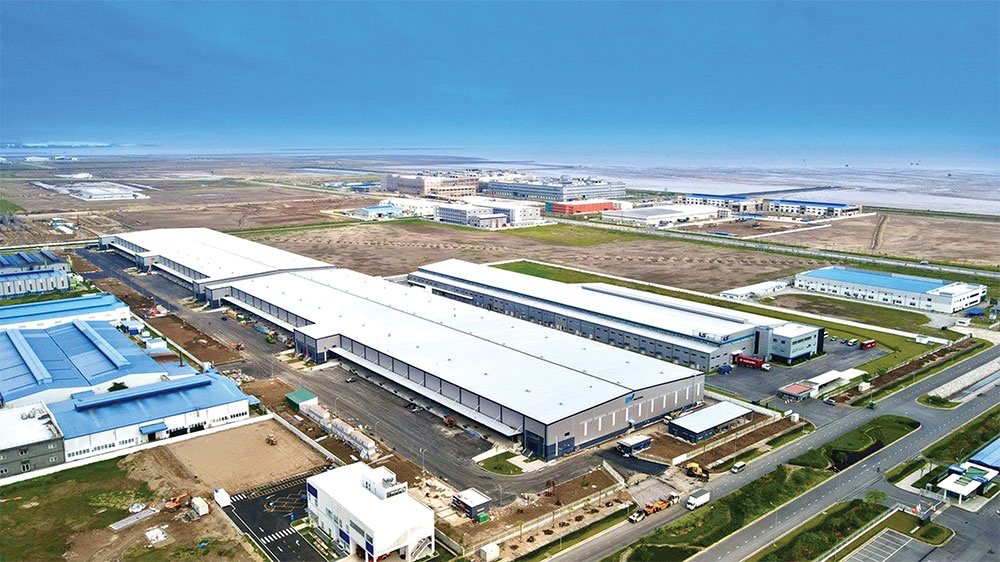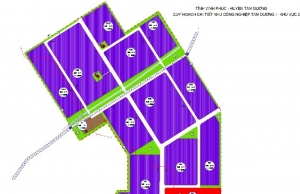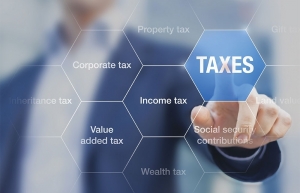Vietnam's industrial rents are rising swiftly
 |
Currently, land rents in IPs in Vietnam are roughly 20 per cent less than in Thailand and Indonesia, according to Vu Minh Chi, senior manager of Industrial Services at Colliers Vietnam. "The reason is the quality and diversity of this market is inadequate," remarked Chi.
Land tax has been reduced by 30 per cent this year, and it is proposed that the VAT rate be reduced to 8 per cent to support production enterprises. All showcase the appealing qualities of industrial real estate in Vietnam.
Vietnam is still considered an attractive investment destination. According to the Foreign Investment Agency, the total registered foreign investment capital in Vietnam reached nearly $8.88 billion in April, representing an increase of 82.1 per cent on-year. The figure includes750 new projects receiving investment registration certificates, with a total registered capital of more than $4.1 billion. In addition, 386 projects were registered to modify investment capital, an increase of 19.5 per cent in projects but a decrease of 68.6 per cent in capital over the same time period.
According to Thomas Rooney, senior manager of Industrial Services at Savills Hanoi, it has not been difficult to observe a sharp increase in the number of projects with capital adjustment, which in part, strengthens investor optimism in the Vietnamese market and continues to prompt decisions to expand current initiatives.
"The fundamental aspects of Vietnam's economy, population, and labour resources are still highly valued. This is also the most compelling argument for investors to enter the market," Rooney said. Currently, labour costs in Vietnam are on the rise, but this rise is not significant and remains average compared to other nations in the region. Vietnam has also invested significantly in infrastructure development, investing 5.8 per cent of its GDP.
"After the pandemic, investors came to Vietnam to survey the market, but they became somewhat hesitant; they wanted to gain a thorough understanding of the market before making any decisions," Rooney explained. The global minimum tax policy will continue to impact foreign direct investment inflows in 2023. This results in a less active market environment. Large corporations have also become wary, contemplating whether to continue investing in light of global economic and political effects.
"Investors need more time," remarked Rooney. In the meantime, Vietnam must address the shortage of skilled labour, ensuring that the quality and quantity of that skilled labour is comparable to that of other regional markets, and enhance its highways, and deepwater and service ports.
 | Industrial real estate picture contrasting from north to south While industrial real estate in the north is recording a strong increase in supply, rent, and occupancy rates, the south of the country is enduring reduced rental demand and legislation obstacles. |
 | Industrial real estate increasingly attractive to investors A total of $8.88 billion was in registered foreign investment in Vietnam as of April 20, in which real estate ranked third with nearly $972 million. Truong An Duong, general manager for North Vietnam and Residential at Frasers Property Vietnam, shared methods to lure in more investment to Vietnam's industrial real estate market with VIR's Bich Ngoc. |
 | Industrial developers eye the effects of upcoming tax regime Industrial real estate developers must be more proactive in responding to the upcoming global minimum tax policy by improving the quality of industrial zone infrastructure and providing more utilities for their tenants. |
What the stars mean:
★ Poor ★ ★ Promising ★★★ Good ★★★★ Very good ★★★★★ Exceptional
Related Contents
Latest News
More News
- Sembcorp Development secures licence for VSIP in Khanh Hoa (December 31, 2025 | 18:54)
- Prodezi Long An advances towards integrated eco-centric industrial park model (December 26, 2025 | 11:16)
- Amata to develop $185 million Amata City Phu Tho (December 23, 2025 | 17:49)
- Work starts on Nhat Ban – Haiphong Industrial Zone Phase 2 (December 19, 2025 | 16:43)
- Becamex – Binh Phuoc drives sustainable industrial growth (November 28, 2025 | 15:22)
- South Korean investors seek clarity on IP lease extensions (November 24, 2025 | 17:48)
- CEO shares insights on Phu My 3 IP’s journey to green industrial growth (November 17, 2025 | 11:53)
- Business leaders give their views on ESG compliance in industrial parks (November 15, 2025 | 09:00)
- Industrial parks pivot to sustainable models amid rising ESG demands (November 14, 2025 | 11:00)
- Amata plans industrial park in Ho Chi Minh City (November 04, 2025 | 15:49)

 Tag:
Tag:
















 Mobile Version
Mobile Version